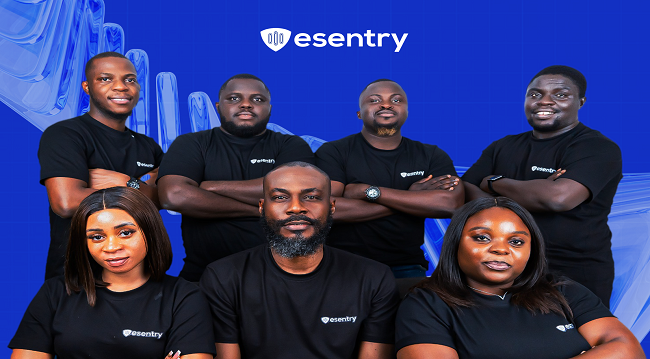E-Business
Arbor Networks’ ATLAS Report Underscores Need for Edge-to-Edge Security in South Africa

As part of its 13th Annual Worldwide Infrastructure Security Report (WISR), Arbor Networks, the security division of NETSCOUT, has released its ATLAS (Active Threat Level Analysis System) special report, which collates data from NETSCOUT Arbor SP deployments from across the globe.
ATLAS effectively delivers insight into approximately one-third of global internet traffic, drawing information and statistics from over 400 networks.
This data is gathered and analysed to determine key trends in DDoS (Distributed denial-of-service) attack activity and results in several interesting insights.
“DDoS attacks are measured in different ways,” said Bryan Hamman, Arbor Network’s territory manager for Sub-Saharan Africa. “Volumetric attacks (75.7 percent of all attacks over the period) are often the most destructive as they send a high amount of traffic, or request packets, to a targeted network in an effort to overwhelm its bandwidth capabilities.
“These attacks work to flood the target in the hopes of slowing or stopping their services and, while typically request sizes are in the 100s of Gbps, recent attacks have scaled to over 1Tbps.”
This year’s report revealed a decline in peak DDoS size however, from 800Gbps in 2016 to 600Gbps in 2017, but that doesn’t mean attackers weren’t busy, added Hamman.
Although the number of attacks over 100 Gbps in 2017 is down from last year, the overall mix of attack sizes is still shifting up. This year, the percentage of attacks over 1Gbps has increased to 22 percent, growing three years in a row, although the vast majority of attacks, 87 percent, are still smaller than 2Gbps.
“Furthermore, peak attack size might have decreased but ATLAS observed an increase in the number of attacks, reporting 7.5 million attacks in 2017 as opposed to the 6.8 million in 2016.”
Arbor believes this is an indication of attacker innovation as they develop new attack vectors and use new tools, like the Mirai botnet’s ability to launch application-layer as well as volumetric attacks.
Hamman says that this year, it was decided to extend analysis to include different geographical regions, including South Africa.
“Looking at the top 10 countries attacked in 2017, it was interesting to note that the first four spots are exactly the same as last year, with similar percentages – these being United States (24 percent), South Korea (10.3 percent), China (8.7 percent) and France (4.6 percent). South Africa features in the top 10 targeted countries in eighth position with 2.7 percent of all reported attacks being targeted here,” he explained.
“For attacks greater than 10Gbps by percentage, South Africa was positioned third for having been hit by 8.8 percent of all attacks in this size range following Hong Kong (10.2 percent) and the US (32.5 percent).”
These statistics are a stark and repeated warning to South African businesses, Hamman stated.
“Complexity was a big focus for attackers this year, as opposed to mass attack volumes, with IoT devices being weaponised. This change in approach has been effective too,” he continues. “Enterprises experiencing revenue loss due to DDoS almost doubled this year, bringing the significance of the DDoS threat into sharp relief and highlighting the very real need for an integrated multi-layer defence from the data centre to the cloud.”
E-Business
Kaspersky Discovers New Phishing Campaign Exploiting Google Tasks Notifications to Steal Corporate Credentials

Kaspersky has uncovered a new phishing scheme that abuses legitimate Google Tasks notifications to trick corporate users into revealing corporate login credentials.

By leveraging Google’s trusted @google.com email domain and notification system, attackers bypass traditional email security filters and exploit users’ trust in familiar services.
In this campaign, victims receive an authentic-looking notification from Google Tasks with the subject line “You have a new task.” The message creates the illusion that the recipient’s company has adopted Google’s task management tool, pressuring them to act quickly. The notification often includes elements of urgency, such as a high-priority flag and a tight deadline, to prompt the victim’s immediate response.
Upon clicking the embedded link, users are directed to a fraudulent form disguised as an “employee verification” page, where they are asked to enter their corporate credentials under the pretense of confirming their status. These stolen credentials can then be used for unauthorised access to company systems, data theft, or further attacks.
“Google’s vast ecosystem of services gets exploited by scammers. The scheme with Google Tasks is part of a broader trend observed before and continuing into 2026, where cybercriminals misuse legitimate platforms to distribute scams and phishing.
Notifications originating from legitimate domains naturally evade many spam and phishing filters, while the social engineering aspect – making it seem like an internal company process – lowers the victim’s guard,” comments Roman Dedenok, Anti-Spam Expert at Kaspersky.
E-Business
esentry 2025 Report Shows Healthcare, Financial Services and Telecoms as Staging Grounds for Increased Cyberattacks in Africa

Cyber adversaries targeting African organisations are increasingly shifting away from opportunistic attacks toward deliberate, sector-specific campaigns aimed at the continent’s most critical digital infrastructures, according to the esentry 2025 Annual Report released by esentry, Lagos-based Africa’s leading indigenous Managed Security Service Provider (MSSP).

The report identifies healthcare, financial services, and telecommunications as the primary staging grounds for high-velocity cyberattacks, reflecting a growing focus on sectors that underpin economic stability, public welfare, and digital connectivity across Africa.
The findings are drawn from one of the largest cybersecurity datasets analysed in the region. Over the course of 2025, esentry processed more than 31 billion security events, generating 3.5 million alerts and successfully blocking over 15,000 malicious attempts. This monitoring scale shows that, while traditional financial institutions remain a core target, the threat landscape has expanded to include digital lending platforms, healthcare systems that store sensitive personal data, and telecom operators responsible for national and regional connectivity.
Within the healthcare sector, the report highlights ransomware as the most acute risk, with attackers frequently exploiting exposed Remote Desktop Protocol (RDP) services to compromise patient data and disrupt essential medical operations. In financial services, organisations are facing a surge in credential abuse, insider-related threats, and info-stealer malware designed to enable fraud and unauthorised access. Telecommunications providers are increasingly targeted by highly tailored phishing campaigns and attacks on exposed web services, which aim to harvest credentials and compromise customer data.
Commenting on the findings, Gbolabo Awelewa, Chief Business Officer at esentry, said the nature of cyber threats across Africa has evolved significantly. “The threats we are seeing today are deliberate, informed, and carefully tailored to local enterprises. Attackers are exploiting trusted access and moving quietly within networks, which makes early detection critical. Our coordinated cybersecurity model, spanning Defence, Intelligence, Offence, and Security Engineering, allows us to combine scale, speed, and deep contextual insight to detect and neutralise threats before they escalate,” Awelewa said.
A defining trend identified in the report is the shift from overt system exploitation to the abuse of legitimate access. By leveraging compromised credentials and ‘living-off-the-land’ techniques, attackers can blend into routine enterprise operations and significantly delay detection. This approach has compressed the attack lifecycle, enabling adversaries to move from initial access to full operational impact in fewer than 15 days.
To counter this acceleration, the report emphasises the importance of early detection and automated response. esentry says it currently contains low-complexity incidents in under 90 seconds, using a combination of structured threat hunting and centralised telemetry to anticipate and absorb attacker pressure rather than reacting after damage has occurred.
As African organisations continue to digitise, the esentry 2025 Annual Report positions itself as a critical reference point for understanding the continent’s evolving cyber threat environment. The report concludes that protecting Africa’s digital trust will require a shift away from fragmented security tools toward disciplined, coordinated defence frameworks, what esentry describes as a unified Phalanx formation.
E-Business
AfDB, UNDP Launch $10Bn AI Initiative for Africa

The African Development Bank Group (AfDB) and the United Nations Development Programme (UNDP) have launched an ambitious $10 billion project to support the adoption of Artificial Intelligence (AI) across the continent.

The 10 Billion Initiative intends to accelerate ethical AI adoption and inclusive digital economic growth in Africa.
The initiative follows the Nairobi AI Forum, which took place earlier this month in Kenya and brought together governments, private sector leaders, development partners, and tech innovators to define pathways for impactful AI adoption.
According to the organisations, the strategy is a co-designed collaboration between the Bank Group, UNDP, and commercial partners that aims to raise up to $10 billion by 2035.
The resources will be used to create up to 40 million new jobs across the continent by 2035, through targeted investments that provide the groundwork for AI and accelerate widespread adoption in everything from entrepreneurship and regional data infrastructure to policy frameworks and skill development.
Nicholas Williams, AfDB Group ICT operations division manager, commented: “As a leading multilateral development institution, the bank is leveraging its comparative advantage to ensure Africa is not left behind in the AI era.
“The AI 10 Billion Initiative paves the way for expanded partnerships and sustained investments that will accelerate AI entrepreneurship, strengthen data and infrastructure ecosystems, and support inclusive growth across the continent.”

 Telecom2 days ago
Telecom2 days agoMTN Nigeria Posts Record N1.70 Trillion Pre‑Tax Profit, Declares N20 Dividend for 2025

 General News2 days ago
General News2 days agoMore 14m Farmers to Benefit from AfDB-backed Initiative

 Telecom2 days ago
Telecom2 days agoDimension Data Nigeria Secures ₦20Billion Funding to Strengthen Digital Infrastructure

 News2 days ago
News2 days agoGalaxy Backbone Confirms Over 150,000 Active Official Government Email Accounts, Clarifies Status of GOVMAIL

 Telecom2 days ago
Telecom2 days agoAlerzo Liquidates Delivery Fleet as N4.38bn Moniepoint Loan Row Deepens

 General News2 days ago
General News2 days agoNewmark Webinar Explores How AI Could Transform Healthcare in Africa

 General News6 hours ago
General News6 hours agoSERAP Asks FCCPC to Investigate Google, Meta, Others over Alleged Rights Abuses

 E-Financial5 hours ago
E-Financial5 hours agoIran-Israel-US Conflict and CBN’s FX Gains: A Stress Test for Nigeria’s Monetary Stability













